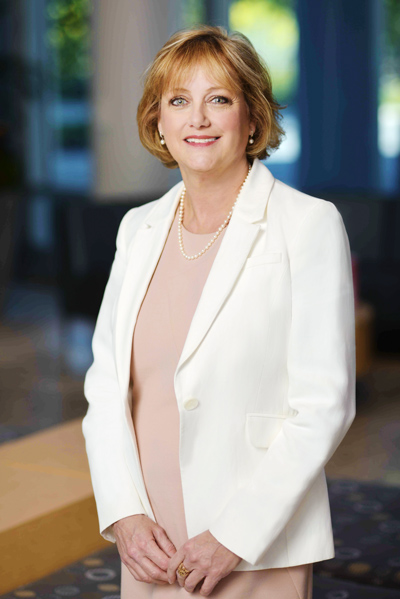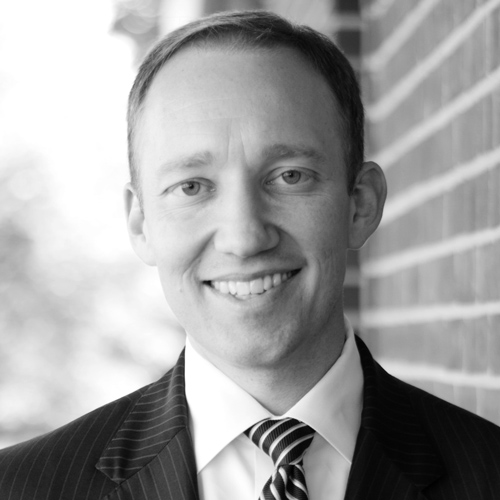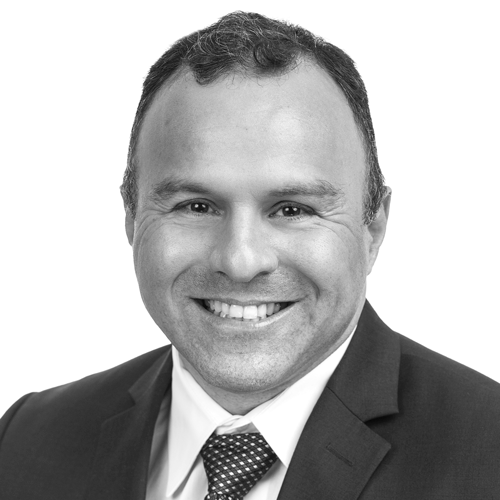Since childhood, Wendie Carlson’s spiritual and humanistic outlook has never dampened. And now as chief human resources officer for West Tennessee Healthcare, which provides medical services to about six hundred thousand patients in a largely rural part of the state, she has found a workplace with a spiritual culture that lets her feel right at home.
As is the case with many hospitals, West Tennessee Healthcare has chaplains on staff. But they also begin leadership meetings, as well as new employee orientation, with prayer. There is a spiritual garden on the hospital grounds, where patients or employees can follow a labyrinth intended to encourage spiritual reflection. When staff asks patients dealing with a difficult condition if they can pray for them, the question is almost always met with appreciation. Certainly, the culture of the Bible Belt has much to do with why all of this works.

“That’s one of the things I love about the South,” says Carlson, who grew up in Minneapolis before making Texas her home for many years. “Up North, people ask if you go to church. In the South, they ask where you go to church.”
At the beginning of her career, Carlson had no inkling that she would end up in healthcare—and certainly not in a rural area of the Bible Belt—but fate can be a strange thing, she says.
She began her career as a flight attendant. When deregulation of the industry led the airline she worked for to shut down operations, she got a job at Four Seasons Hotels. Her application was to be a concierge, but they offered her human resources. To her surprise, it was a perfect fit.
“I really just fell into HR,” she says. “It wasn’t a career I aspired to. But what I found early on in HR is that you establish meaningful relationships with people. You hire new employees, then you see them get married, have babies, and get promoted. I realized I had a calling to interact with people one person at a time.”
After ten years, Carlson decided to make a move into healthcare. It may seem that the two industries couldn’t be more different, but Carlson says she immediately saw the similarities.
“Hospitals have beds and food and beverage services just like hotels, so that was something I was already familiar with,” she says. “And I loved the idea of working for organizations with a commitment to improving the health and well-being of people and communities.”
At West Tennessee, which Carlson joined in 2012 after years of working for other healthcare employers, the spiritual culture seems to add an extra element to that commitment, which Carlson enjoys. As an HR executive, however, she is sensitive to the possibility that a potential employee could feel alienated or turned off by that, and she says that all staff have that same sensitivity. The lead chaplain, for example, makes sure prayer at meetings is always nondenominational, so as not to put anyone in an uncomfortable position.
As with any hospital, whether faith-based or not, staying fully staffed with good people is a challenge. Getting the right people is even more difficult for rural health systems such as West Tennessee, which sees many candidates in its area gravitate toward similar opportunities in nearby Memphis and Nashville. Still, Carlson says that her hiring philosophy goes well beyond the idea of simply filling a need as fast as possible.
“In day-to-day recruiting, it’s about filling the needs we have today,” she says. “But I’m more of a global strategic thinker. I believe the ability to develop a workforce is what allows an organization to excel. If we hire the right people with the right attitudes, and who are a good fit for the culture, then as the needs of the organization evolve and change, they can evolve and change in step.”
And Carlson is also trying to keep in step with new recruiting technology and techniques. Before beginning the search for a new head of talent acquisition, she attended a conference of healthcare recruiters. At the conference, she learned about modern recruiting techniques using social media, networked with people, and took note that some of the HR leaders she met there had come from industries other than healthcare. All of that played into finding the person she ultimately hired. She is also in the process of implementing a new applicant-tracking system that will be easier to navigate so that applicants won’t give up on the process out of simple frustration.
The spiritual culture and outlook at the organization permeates everything, including HR. But Carlson emphasizes that the value of that culture lies in the way it manifests every day as staff interact with each other and with patients.
“To me, the faith-based part of our culture is less overt than prayer and services,” she says. “It’s more about values like love, respect, and inclusiveness—the way we treat every person, every time.”


